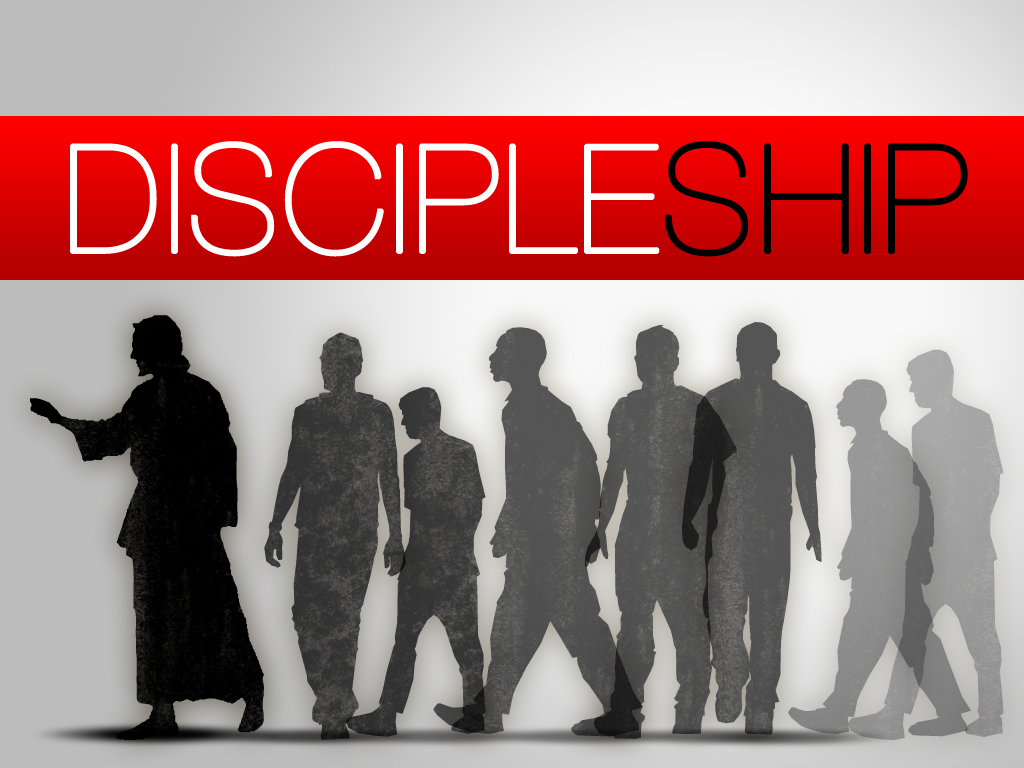
The following article was written by Pastor Torrey Jaspers. It is an excellent article that gives many practical suggestions for helping the people around us grow spiritually. Give it some careful thought and lets try to put it into practice this year. — Pastor Ron
________________
One hundred and thirty miles east of Ironwood is a bridge that goes no-where. In 1968, Robert McCulloch purchased the Longdon Bridge for $2.5 million. They individually coded each brick and transported the bridge to Lake Havasu City, Arizona where it was meticulously reconstructed brick by brick at a further cost of $7 million. Great effort and expense went into the purchase, transport, and construction of this bridge that goes no-where. While the bridge was built next to the Colorado River, a channel had to be constructed underneath in order for water to actually flow under the bridge. Here is the irony, there is a legitimate need and use for a bridge over the Colorado River at this point. The nearest crossing points for the residents of Lake Havasu City are either thirty miles to the north or twenty five miles to the south. Great effort and expense was put inot building a bridge that really goes no-where.
Have you ever spent time and energy investing in a relationship that really is going no-where? By a go-n-where relationship, I mean a relationship that is basically built on temporal values. You can talk about the weather, last night’s game, or politics, but there is anot a consistent spiritual dimension to the relationship. Have you ever wished you could figure out ahow to take the conversation to a deeper level. To point that it actually begins to minster to their spiritual needs? What you are desiring is a relationship that ministers. Ministry is defined as a faithful endeavor to meet the spiritual needs of others – all to the glory of God. Have you ever wished you could figure out how to connect with a person so that you were meeting their spiritual needs, but you just can’t seem to figure out how to bridge that relationship gap?
I know that this thought has often come to my mind and it is a burden on my heart that my relationships would be, in some way, pointing people to know God both accurately and majestically. I would like to give 6 practical suggestions that just might help you construct bridges of relationships so that ministry begins to happen.
1. Take Initiative:
You must view yourself as the leader in the relationship. As a leader you have to … well … lead! Sometimes you just have to just jump in and start the relationship. Don’t wait for the other person to take the initiative and come talk to you. It is your job. Go do it!
The best practical suggestion that make “jumping in” happen is to put that relationship on your schedule. Putting it on your schedule commits you to a time to do only that. As much as is possible don’t change the schedule for your first meeting, a change can set a poor atmosphere for the relationship.
Consider carefully using incentives. Incentives can be a great way to have the excuse to have a conversation. “Hey, can I buy you a Starbucks?” can be a natural way to jump start a relationship. Caution: incentives can also be misunderstood as being manipulative. Be honest about why you are wanting to buy them the Starbucks. Let them know, “I just wanted to spend a little time with you to see how you are doing.” If you notice they seem concerned about your motivations, realize that means that you need to make an extra investment into your “Trust-Fund” (see next section for explanation of this term)
Also, if you are nervous about this bold step, make certain that your confidence is in God. He has given you this opportunity to be His representative, so He will empower you to do His work. If you are fearful, take a moment to review your motivations. Are you driven by a desire to lovingly help others better know God? If son, whether you are accepted or rejected you are being faithful to your Lord.
2. Create Relationship:
It is important to figure out a way to start interacting. As you begin to interact remember that the other person very likely may not trust you. That is understandable. You don’t have a relationship yet. They may not open up to you and be willing to be spiritually vulnerable to you.
You need to earn their trust. The more you invest in their life, the more you are earning their trust. This is the idea of a “Trust-Fund” with them. The more you invest in them, the more they will trust you. The more you prove to be trustworthy, the more they will trust you.
Time is one of the most valuable currencies in relationships. Invest in the lives of others with your time. Figure out a way to spend time with that person.
What is the age of the person with whom you are wanting to build a relationship?
• Junior? Juniors develop relationships through play. Here at camp, counselors can quickly build a relationship with a junior camper by just having fun with them. If you have taken the time to fun with an elementary age child, it is often quite easy to transition the conversations to spiritual things. Your investment of time by having fun earns you their trust, so find an appropriate way to have fun with them.
• Teenager? Teens are trying to interpret life. If you can listen patiently and respectfully to a teenager talk about what is going on in their world and then help them with some practical answers for what they are facing in life that are based on God’s Word, you will go a long way toward earning their trust.
• Adult? Often the best way to build a relationship with an adult is through times of difficulty. Don’t pass up an opportunity to help out a person going through a hard time, it will be a big investment in your “Trust-Fund”.
Demonstrate a willingness to sacrifice so that this relationship can happen. This allows you to be an example of a Biblical servant. If you give the impression that meeting them is going to be a hardship on you, then they will have a hard time opening up to you. They don’t want to be a bother, so be willing to be gladly inconvenienced.
Be willing to give to the relationship. This may mean you might have to, initially, drive the longer distance to meet. This may mean that you buy them the book or purchase them the first coffee.
Sometimes creating a 2-way relationship can jump-start a relationship. What is a 2-way relationship? It is when you find a way to learn from them. A way they can teach you something. This can be everything from a Junior teaching you a game, to a teen teaching you a new skill, to an adult helping you with a project that is outside of your abilities.
3. Map a Plan:
A relationship that ministers must include meaningful spiritual conversation. You can’t always just DO stuff together. You have to move beyond temporal topics and connect their heart with Truth.
Take some time to map out how you think you can help them. This may mean:
• Identify what you perceive is their primary need right now
• Connect that perceived need to a spiritual heart condition
• Select a plan to address that heart condition
There are different approaches for different relationships. Identify what type of relationship you are wanting to develop. Here are a few examples:Is this a first meeting where you are just getting to know a person who is essentially a stranger? Is this a temporal relationship that you want to include a spiritual dimension? Perhaps it has been a fairly shallow relationship focused almost exclusively on temporal topics. Now you want to be able to talk about life-changing eternal truths. Is this a relationship where you need to confront another person? Is this a relationship where you are tapping into their potential for leadership and develop and direct that potential?
We must work hard to prevent relationships from merely maintaining the status-quo, and idtnify where this relationship is and what is the next step to give direction and purpose to the relationship. A mature leader is willing to lead where the other person needs to go, not just where the other person wants to go.
4. Set Atmosphere:
Identify the best setting for the conversation. This will look different for different personalities. One of the best ways that I have conversations with men is to go for a Jeep ride. There is something about both of you looking out across the desert rather than across a desk that makes it easier to talk about serious topics. It may need to be in your living room with snacks or in your office with your wife present.
Always be honest and upfront with the other person about your intentions and then always be true to those intentions. One associate pastor I used to know would say to me, “God loves you and I have a plan for your life.” Needless to say I had a hard time trusting him. He always seemed to have a hidden personal agenda that I didn’t discover until I was shanghaied.
Create and cultivate a culture of safety in the relationship. They have to know that your only motivation is what is best for them. This may mean you need to carefully define the meaning of the word “confidential” in your relationship. Don’t promise confidentiality that you cannot and should not provide.
Protect your personal integrity. Never break a legitimate confidence. This means you don’t say to a third person, “Don’t tell anyone, but … “ Never betray a confidence with the guise of a prayer request.
Put them at ease. Let them know that spending time with people is one of the things you enjoy most in life. Let them know that spending time with people is one of the things you enjoy most in life. Let them know that you enjoy them and are looking forward to spending time with them. This can be done with a simple statement like, “So I’ll see you tomorrow night at Starbucks? Great! I’m really looking forward to it. I think we’ll have a good time.”
Work hard at being appropriately transparent with them. An attitude that gives the impression that you have it all together spiritually and don’t have any problems in life will hinder their willingness to open up to you. People rightfully have a hard time trusting sinners who pretend to be perfect. Try to remove the atmosphere and expectation of perfection as early as possible in a relationship. This may be a simple comment, “I know this is something I am always doing battle with. How is your battle going?”
5. Start Talking:
I believe that asking questions is perhaps the best way to start conversations. We see that Christ often used questions to begin conversations.
Here are a few questions that I may use to start a spiritual conversation:
“So, on a scale of one to ten, how are your devotions going? One is, ‘what are devotions?’ and ten is ‘I have them every day in the original languages’.” Then ask them how you can take it to the next level. This 1 – 10 question is also helpful for those hard questions like their thought life, etc.
“So, what is the biggest challenge in your walk with God right now?”
If an individual is wanting to talk about a difficult topic but they just don’t know ho to start, you might ask, “So if you knew that you were absolutely safe and that nothing would change my care for you, what would you want to talk about?”
“What is the thing that scares you the most right now?”
“What has God been teaching you about Himself this week?”
As often as possible, use every conversation to connect their life with a Truth from God’s Word and leave them with a higher view of their God.
You can test their seriousness about spiritual matters by giving them a simple project that will engage and challenge them. This might be listening to a podcast, read an article, meditate on a verse or two of Scripture, read a chapter out of a book, etc. If they own that project and eagerly complete it, you know they’re serious about growing.
Once you start a spiritual conversation, keep talking. Okay, so I don’t mean that day, but I do mean don’t let one good conversation be your only spiritual conversation. Plan a follow up time. Ask them follow up questions to your previous conversation. Find out if they are making progress on their project.
6. Build On-Ramps:
Ministry is often strongest when more people are involved in those relationships. Often you will begin a relationship, but you realize that they don’t naturally relate to you. There is another believer that they have a more natural connection with.
This is great! This gives you an opportunity to get more people involved in their lives. This provides for greater fellowship, ministry opportunities, and accountability. Frankly, it is possible that another person will mentor and disciple this person better than you can.
Try to build an on-ramp that brings another person into the relationship you have worked hard to construct. Figure out a way to get another person involved in their life. Triangulation in relationships creates more effective ministry. This allows the person being disciple to have more resources and connections. This gives another person an opportunity to minister and invest. This also gives you greater flexibility in your schedule to be free to minister to others.
2 Timothy 2:2
Conclusion:
Now give it a try. Why don’t you stop right now and identify a person that you would like to try to construct a bridge of relationship that will result in ministry. This is rarely easy or convenient to your life’s schedule. Take fifteen minutes to work your way through these six steps of construction bridges for one person right now and develop a plan.








